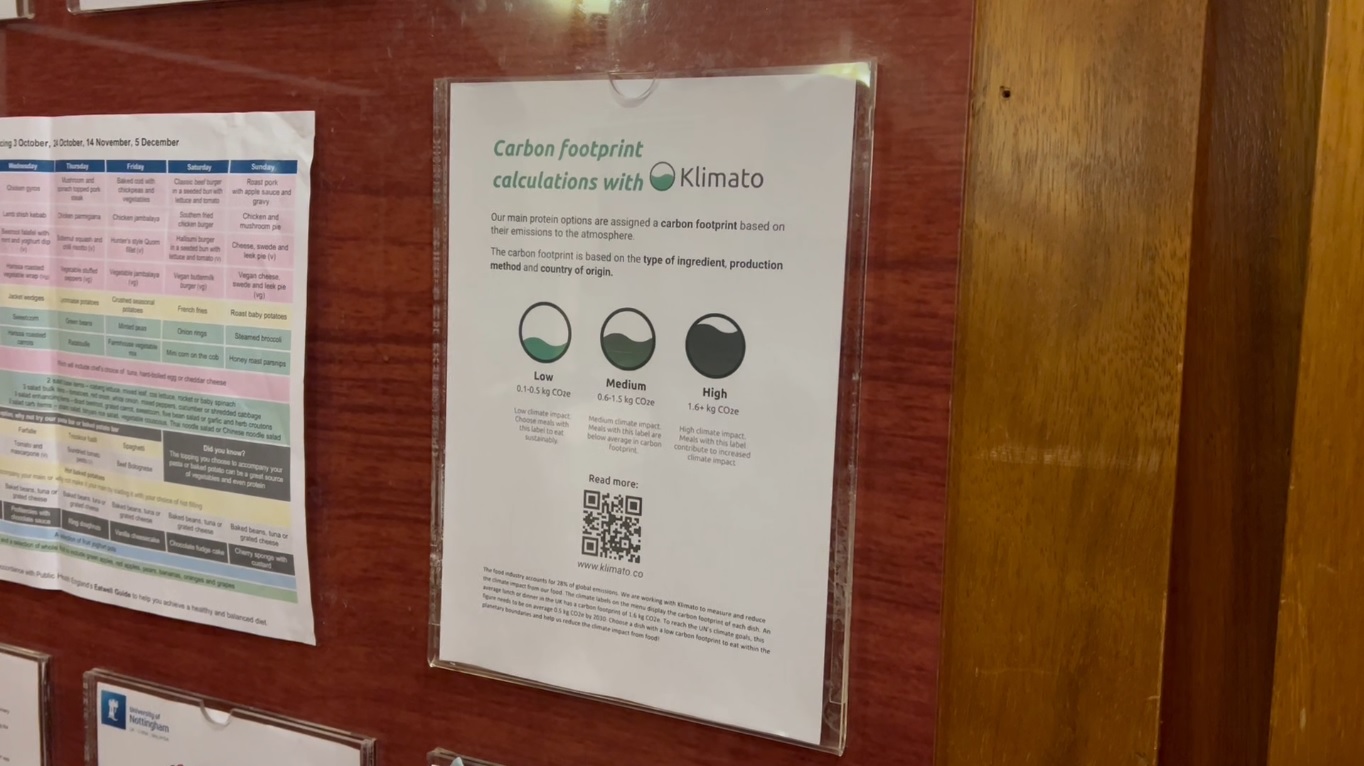The University of Nottingham is introducing carbon labels on its food menus in a new effort to support Nottingham's carbon neutral targets and increase the university's sustainability.
Nottingham will be the first university in the Midlands to roll this campaign out, starting with trials in its catered halls, as well as Japanese restaurant Saijokai and Café Mama's in Portland Building on University Park.
The carbon labelling, which uses three different levels to identify the carbon footprint of its meals, will help staff and students on campus understand the carbon impact of their food choices.
The food industry currently accounts for 28 per cent of global emissions, and around 8 per cent of the university's total carbon footprint.
The University of Nottingham has partnered with Klimato to climate label its menus, helping staff and students choose planet-friendly meals that contribute to reducing the climate impact from food.

The climate labels display the carbon footprint of each meal in kg CO2e (carbon dioxide equivalent), which equals the total amount of greenhouse gas emissions from that dish. The carbon footprint is calculated based on ingredients, production method and country of origin using a method called Life Cycle Assessment. The label also indicates whether the carbon footprint of each dish is equivalent to a low, medium or high climate impact.
Sarah Cawthorne, Environment Officer from the Sustainability team at the University of Nottingham, said: "We wanted to give staff and students the opportunity to see the carbon impact of their food and also make an informed choice.
"Young people nowadays are becoming more aware of the consequences of their choices. As a student living in catered accommodation, there's a limit to what you can do yourself; although food is such an individual choice, this shows that you can make a difference with it.
I'm hoping it will empower them to feel like they can make a small change.
The three levels included on the labels are as follows:
Low (0.1 - 0.5 kg CO2e)
Choose meals with a low climate impact to eat within the planetary boundaries and contribute to reducing emissions from food in line with the UN's climate goals.
Medium (0.6 - 1.5 kg CO2e)
Meals with a medium climate impact have a carbon footprint comparable to the average lunch or dinner in the UK, which is roughly 1.6kg CO2e.
High (1.6+ kg CO2e)
Meals with a high climate impact have a higher carbon footprint compared to the average lunch or dinner in the UK today.
Image below credit: Klimato

In the UK today, an average lunch or dinner has a carbon footprint of roughly 1.6 kg CO2e. According to WWF, this number should not exceed 0.5 kg CO2e in order to reach the UN's climate goals defined in the Paris Agreement.
The new menus are now live in catered halls and in restaurants Portland Saijokai and Café Mama's. If the trials are successful, it will then be introduced into other catered outlets.
Other universities currently using Klimato carbon labels are: University of Bristol, University of Manchester, University of Reading, Falmouth University, University of Exeter, Chrurchill College (University of Cambridge) and Glasgow Caledonian University.






